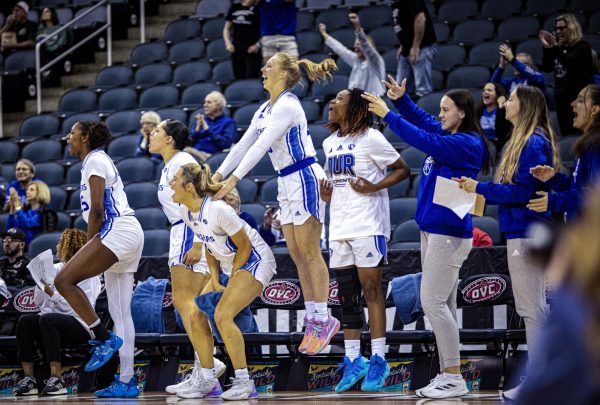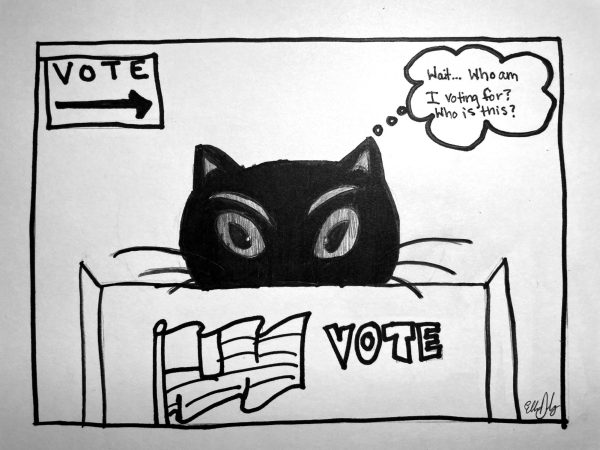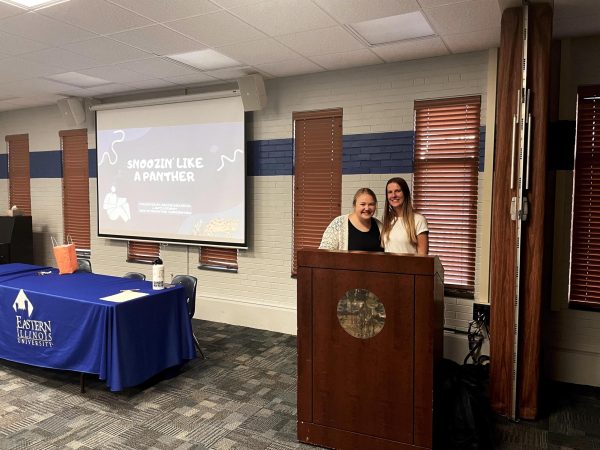Students have animals to aid with disabilities
September 12, 2018
If the school year presents some difficulties for a college student with a disability, then having a furry friend on campus is the solution.
Ann Sims, a senior early childhood education major, said the school year was getting hard for her with managing school and going to a lot of counseling last fall semester.
She then decided to adopt Bella, her emotional support Beagle terrier dog, last April who lives with her in a single-dorm room.
“She is a large help,” Sims said. “She gets me out of my room to walk her out.”
Sims said getting approved to have Bella on campus was a two-and-a-half week process, as it had to be approved by both the Office of Student Disability Services and the Housing and Dining Services, who has the final say.
Jody Stone, the senior associate director of housing, said they currently have 16 students in on-campus housing who have emotional support animals.
The most common disabilities on campus that Stone said students have support animals for is anxiety, in which the student has an emotional support animal, and a hearing or vision impairment, in which the student has a service animal.
Natalie Fadden, a junior communication disorders and sciences major, said this semester is the first time she has a 2-year-old cat, Theodore, who is an emotional service animal living with her in a residence hall to help cope with anxiety.
“I love having him here,” Fadden said. “It’s been less stressful compared to the last full years I’ve been here in EIU.”
Fadden shared that she is both equally a cat and dog lover but thought a cat would be better for her lifestyle. She is now starting to adapt to having Theodore living with her.
“In the beginning it was challenging; I had to learn (to) take care of him, like know his feeding times,” Fadden said. “But now, my classes aren’t long, so I can check up on him in between.”
Stone said different rules and policies apply to each type of animal service, whether it is a service dog, therapy dog or emotional support animal, and if a handler has a hard time maintaining their service animal, then it would no longer be permitted on campus.
Sims said one of the policies is that if she is in the basement with Bella, it may not be for a long time because people might be allergic or scared of a dog.
Although, she said Bella loves attention and loves everybody or will approach someone if she senses they are having a bad day.
“She likes to cuddle me and snuggles,” Sims said. “She can also sense when people are having a bad day and will comfort them like once with a girl who was having a bad day.”
The advice Sims gave for those interested in having an emotional service animal is to ask and get informed at the Student Disability Office or their counselor.
There is also a page on the Eastern’s website titled Disability Services, Emotional Support Animal Policies and Procedures, which Stone recommended for students to get more information.
Valentina Vargas can be reached at or [email protected].













































